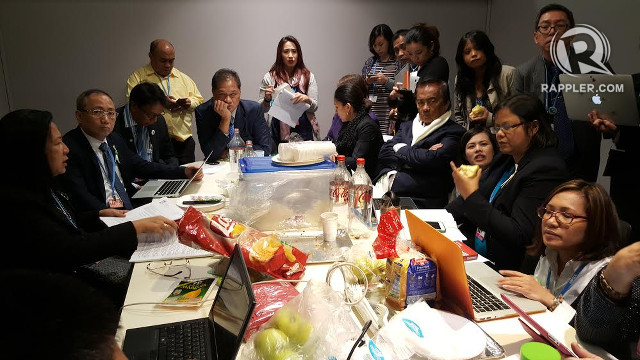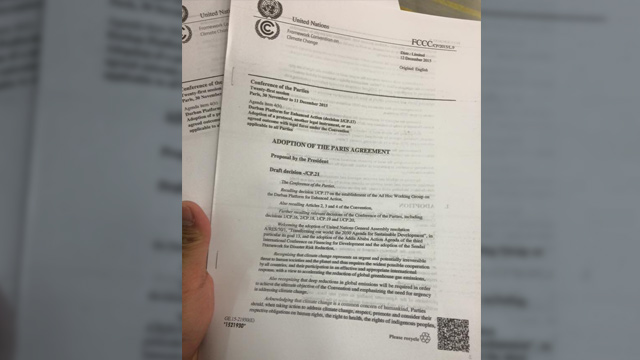
KABUL, Afghanistan – Four Afghan policemen and two Spaniards were killed in a 10-hour Taliban siege of a guest house near the Spanish embassy in Kabul's diplomatic quarter, the latest high-profile insurgent attack that ended early Saturday, December 12.
Multiple blasts and gunfire rocked the high-security zone after militants launched the raid Friday evening, just hours after President Ashraf Ghani voiced optimism that a peace process with the Taliban would resume within weeks.
"A group of suicide bombers attacked a guest house... one of the bombers detonated an explosives-laden vehicle at the gate and opened the way to other attackers," the interior ministry said.
"Unfortunately... four policemen were martyred and seven civilians were wounded."
The government in Madrid confirmed that two Spanish policemen were also killed during the assault, which saw the powerful car bomb rip open the gates of the embassy compound.
The blast sent a thick plume of smoke into the sky and was followed by multiple explosions through the night along with sporadic bursts of gunfire.
Security forces near the embassy ducked from gunshots as they hauled away a limp body and two wounded men through the dark to a waiting ambulance – one bleeding from the head, the other a policeman with a gunshot wound to his leg.
The guest house was left scarred with shrapnel and littered with piles of rubble.
Madrid denounced the assault as "an attack on Spain".
The interior ministry said 12 guests from the facility in the wealthy enclave of Sherpur were rescued, but did not confirm their nationalities.
Afghan officials said the last of the four assailants was killed in the early hours of Saturday.
The attack follows a deadly 27-hour Taliban siege of Kandahar airport this week as the militants ramp up attacks despite the onset of the harsh winter season, when the fighting usually calms down.
The Taliban also claimed responsibility for Friday's attack, saying the guest house had been the target.
The wealthy enclave of Sherpur is home to several foreign NGOs and the residences of senior government officials, including controversial former warlord Abdul Rashid Dostum, Afghanistan's first vice-president.
'Expecting talks is foolishness'
The attack comes just days after Ghani's high-profile visit to Pakistan, where he shored up international support to restart peace talks with the Taliban.
As the president held talks in Islamabad on Wednesday, at least 50 people were killed in a long Taliban siege of Kandahar airport, the largest military installation in southern Afghanistan.
Eleven suicide attackers breached the high-security complex, which also houses a joint NATO-Afghan base, taking families hostage and triggering firefights with soldiers.
"By mounting big attacks, the Taliban are making clear that they are not interested in peace talks," Kabul-based analyst Jawed Kohistani told Agence France-Presse (AFP).
"Or that they are keen to wrangle big concessions from Kabul before they come to the negotiating table."
As the country grapples with a Taliban upsurge, Afghanistan's spy chief on Thursday quit his post, laying bare disagreements with Ghani over his diplomatic outreach to Pakistan, long blamed for nurturing the insurgency.
The resignation of Rahmatullah Nabil on Thursday highlighted the domestic backlash Ghani faces over his attempts to repair strained relations with Islamabad.
The president has staked considerable political capital in advocating bonhomie with Afghanistan's neighbour.
Ghani shrugged off Nabil's criticism on Friday, saying Pakistan had promised to go after Taliban factions that refuse to stand down.
"Without positive support from Pakistan, won't the war in Afghanistan keep dragging on?" Ghani asked a press conference on Friday.
"The time has come for different Taliban factions to choose peace... the talks will start in the coming weeks."
But the Taliban rebuffed his remarks.
"The mujahideen are making rapid military gains, capturing territory and destroying enemy centers," Taliban spokesman Zabihullah Mujahid wrote on Twitter.
"Expecting us to surrender and come for talks is foolishness." – Mushtaq Mojaddidi, AFP/Rappler.com


















